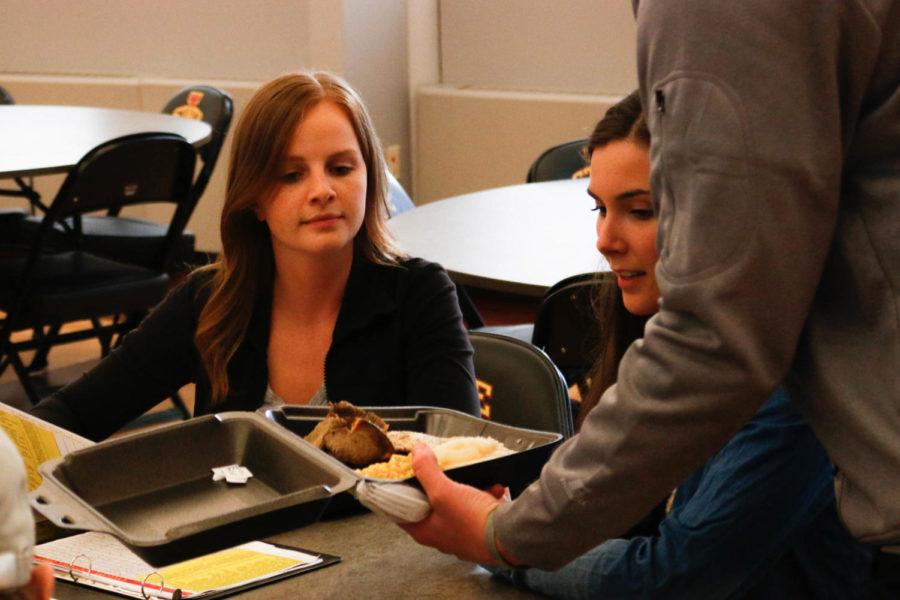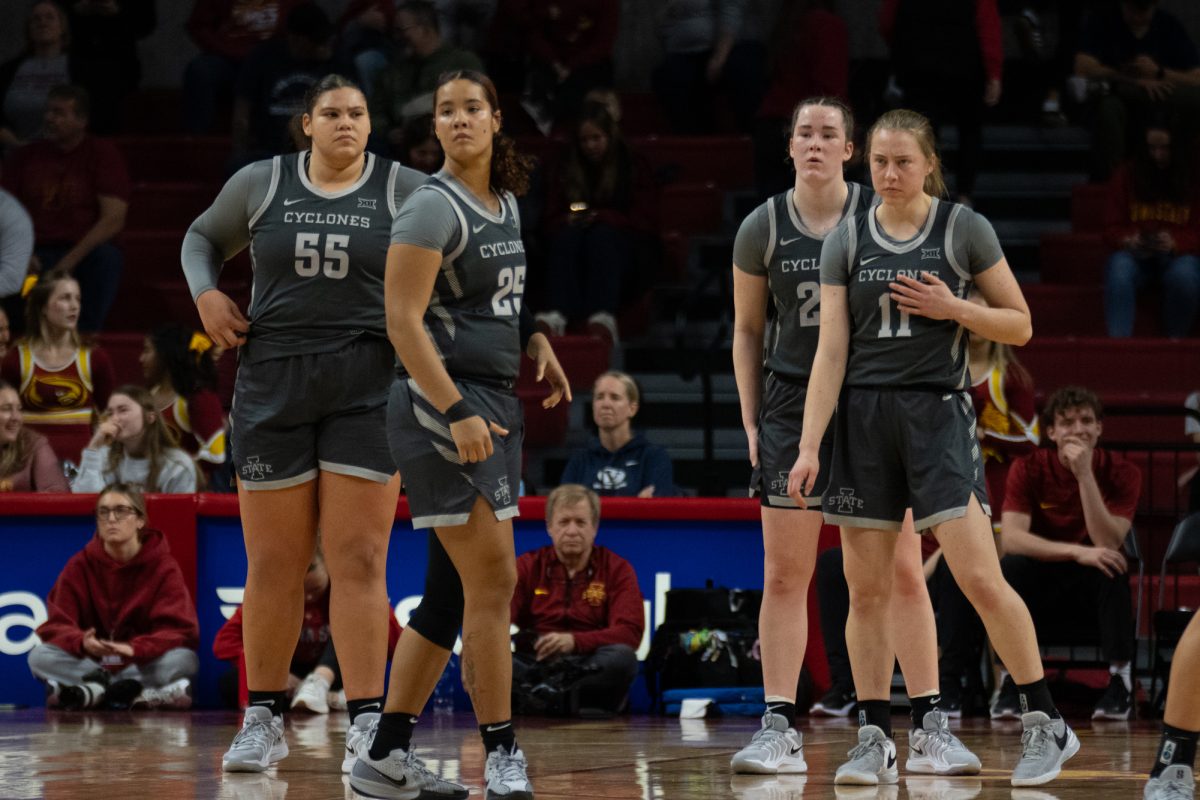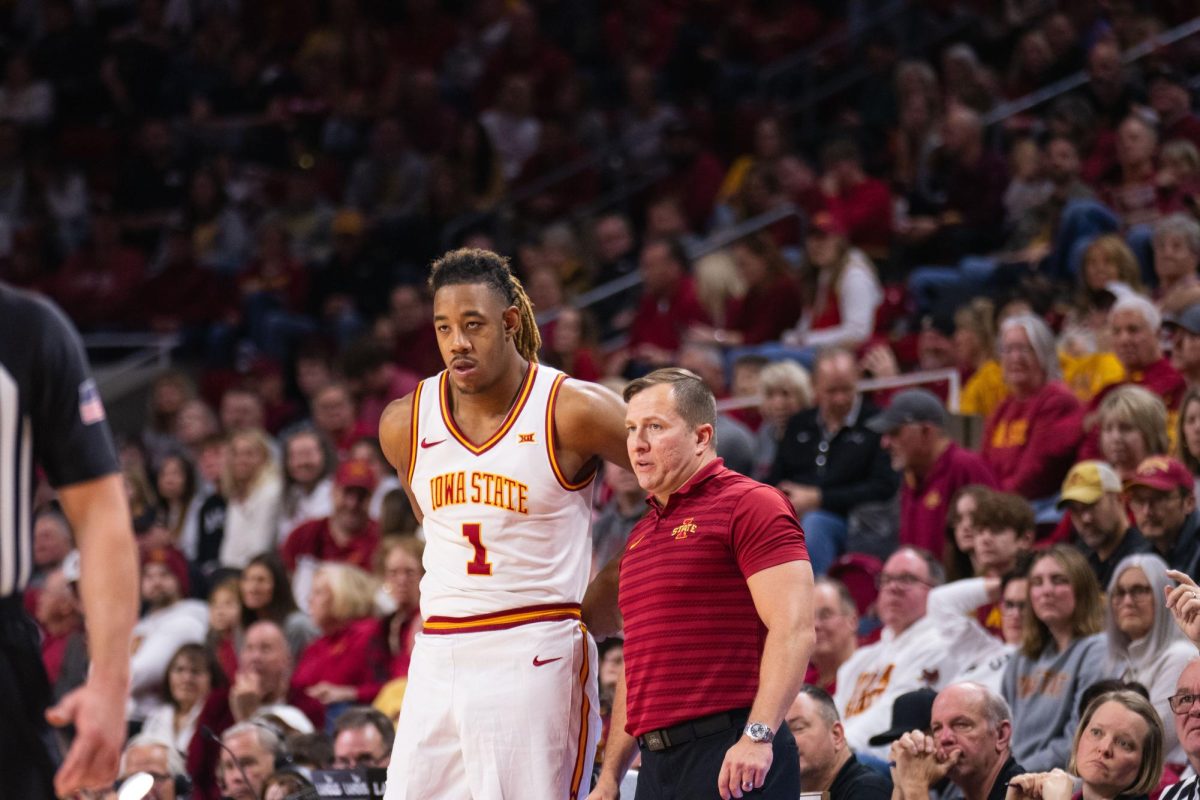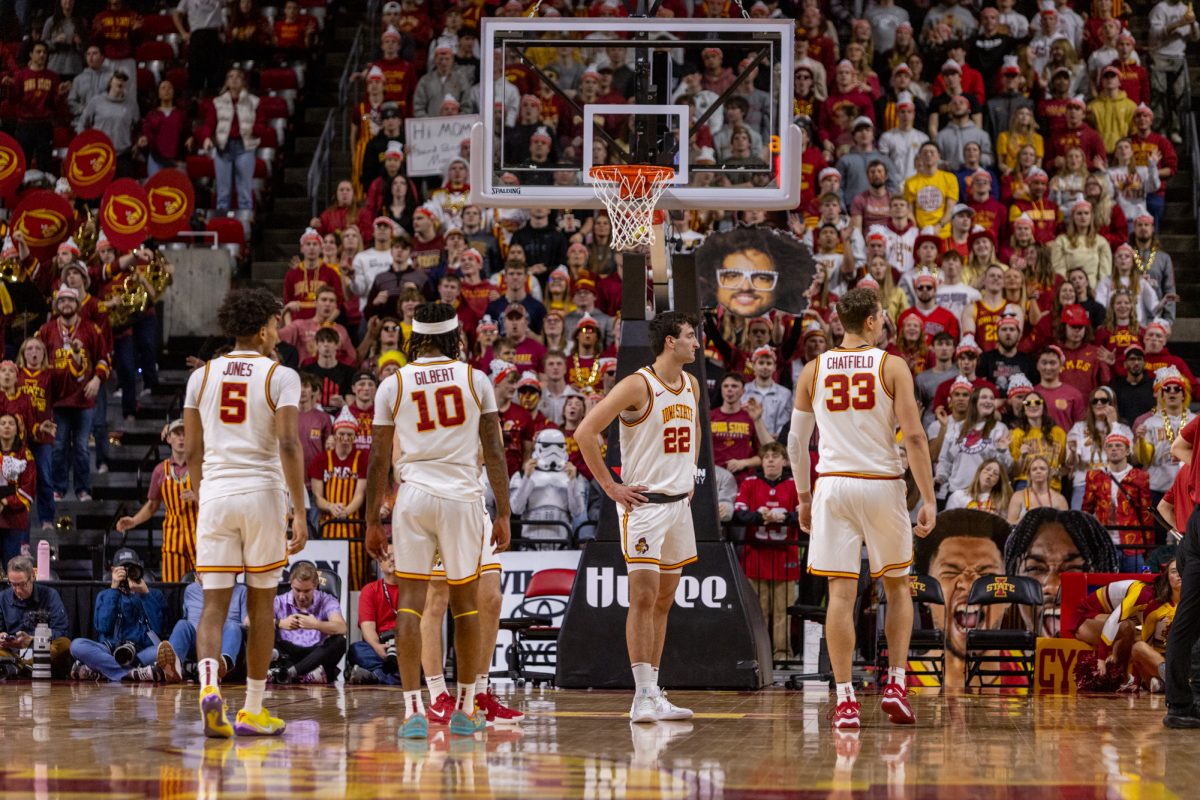Gainers, maintainers and losers: a look at Iowa State’s athletic nutrition
March 20, 2017
With higher intensity training comes higher demand for nutritional diets. Student dietitian interns for Iowa State Athletics are instrumental in helping athletes maintain the healthy lifestyle they need to perform well.
Dietitian interns work with each team to help athletes learn more about nutrition and how it affects their performance. The program currently has seven interns, but they mostly work with the football team, as they just are in the middle of spring practice and are getting back into higher intensity training.
Each of the interns work under Erin Hinderaker, the athletic department’s only registered dietitian. Senior or graduate-level students can apply, as long as they are in some sort of nutritional field of study, like dietetics or nutritional science.
The main duty of the interns is assisting at the football team’s meals. It is a requirement that these interns attend two meals per week. Players on scholarship receive breakfast after their morning workouts and dinner after their evening sessions, and are also encouraged to take snacks to fuel throughout the day. These meals are planned by Hinderaker and catered in by Hy-Vee to Heartland Hall in the Jacobson Building.
These meals and snacks are a new addition to the football program, as they became available in January.
“We wanted to implement these meals for the guys to make sure that they are getting adequate energy throughout the day,” Hinderaker said. “I think that the coaches and myself are all in agreement that nutrition is a huge part of performance.”
Some players have been noticing differences in their performance because of this change.
“Last spring when we didn’t have [the meals], I lost weight,” tight end Sam Harms said. “This year since we’ve had it I’ve already gained 10 pounds.”
Hinderaker and some of the interns agreed that by offering players more opportunities to eat, players have a better chance of achieving their goal weight.
“In the past, I don’t think it’s been very implemented that nutrition plays a big part in football,” intern Katharine Rosenthal said. “If they’re not eating enough food, then they’re going lose all of their energy really quickly, and then they won’t be able to perform their best.”
There are usually one or two interns at each meal. As each player fills up their plate, they take it to the intern working and it is looked over to decide if it is satisfactory or not. The intern is supplied with a binder with each player’s name, along with which group they are currently in: maintaining, gaining or losing weight.
If the plate is not up to the intern’s standards based on which group that player is in, they talk about what food they could add or take away.
“You don’t really have to worry about when can you eat and what do you eat, they actually supply it here for us,” running back David Montgomery said. “It’s healthy, nutritious, it helps a lot.”
Some coaches have noticed a change in their players due to the education and meals provided by the nutrition department.
“I think our guys have drastically improved in how we’ve asked them because the food’s been right in front of them, the education’s been right in front of them,” Alex Golesh, the team’s tight ends coach and recruiting coordinator, said.
Louis Ayeni, the associate head coach and run game coordinator, also said he thinks the program is helpful.
“[The nutrition program] helps the players a lot,” Ayeni said. “[It helps players] from a recovery standpoint and strength gain standpoint. Being able to be mentally and physically sharp where you’re not famished and you have energy to get through practice, or even get through the day.”
One of the interns, Sara Harper, believes athletic performance is related to proper diet.
“I think [having a healthy diet] is important because it keeps [athletes] safe,” Harper said. “It protects them against injury. I know that diet plays a huge role in health and wellness.”
Other than assisting at meals, the interns also create and host presentations. Harper said that she has hosted cooking labs before, where she teaches players how to prepare healthy meals for themselves.
Harper also works with another intern to build a weekly menu. They basically look at the dining center menus for the week and make recommendations for athletes eating there.
They also create posters for different sports to help the athletes better understand the nutrition. Rosenthal made posters for the football team with pre- and post-workout meal tips for each of the maintaining, gaining and losing groups.
“It’s like a quick and easy way for the football players to learn what they need to eat and have a better understanding why they should be eating it,” Rosenthal said.
With all of the different ways the dietitian interns educate and prepare the athletes, it might be seen by some as overwhelming. However, Hinderaker feels it is necessary.
“There’s a quote that I always put in my presentations,” Hinderaker said. “‘Nutrition can make a good athlete great, and a great athlete good.’”







